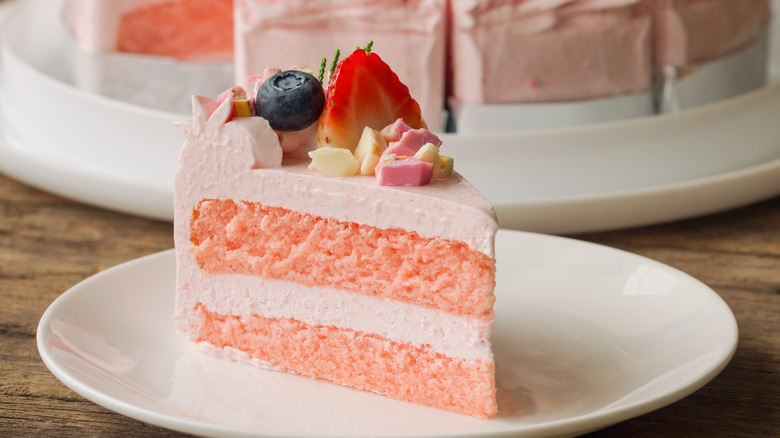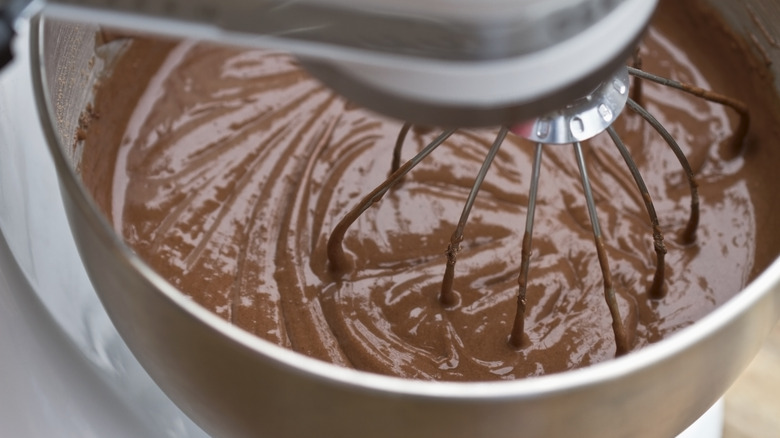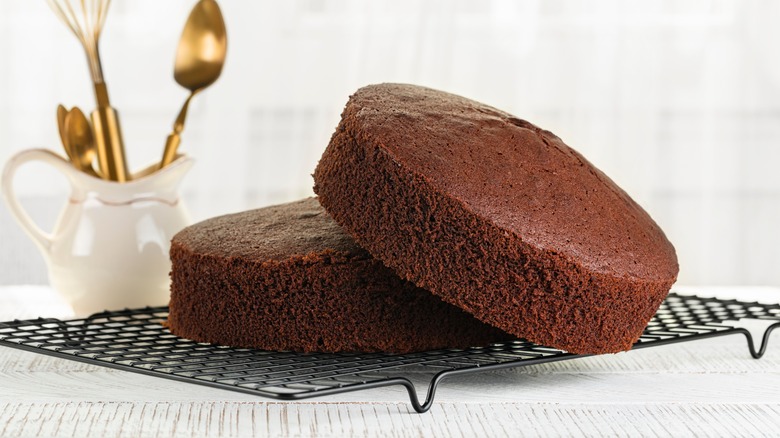Here Are The Culprits To Blame If Your Cake Is Too Dense
Baking a cake can be finicky work. That's because although professional chefs on TV make it look easy, it can actually be hard to get your cake to come out light, fluffy, and well-risen. Instead, many people find their cakes are dense and stodgy.
The good news is that there are actually some easy ways to avoid this happening the next time you go to bake a birthday cake (or any other kind of cake, for that matter). Oftentimes, an overly dense cake can be the result of using too much sugar, liquids, or baking powder — and even baking your cake at too low a temperature.
Whatever the case, you can easily lay these density worries to rest with just a few simple kitchen tricks. Here are a couple of the culprits behind why your cake is so dense, how to avoid them, and a few tips to make sure your cake comes out light and fluffy every time you bake.
What can cause a dense cake?
One of the first reasons why your cake may be too dense is if you use too much liquid, sugar, baking soda, or baking powder. Unlike cooking, baking is an exact science, and if you round up the measurement of your ingredients, you can add too much and get a dense cake. It's best to use a kitchen scale when baking, or just measure very carefully and precisely.
Besides getting quantities right, the types of ingredients you use matter. For instance, you can use cake flour, which has lower gluten and protein contents and which is also ground more finely. However, it's not best to use cake flour in chocolate cakes. It's not just your flour that plays a role in a dense cake; your leavening agents can be to blame, too. Using baking powder or soda that's past its expiration date is a prime way of causing your cake to be too dense. When baking soda or baking powder is expired, they don't do their job as well, leading to your cake not rising properly and becoming dense instead.
Another reason why your cake may be too dense is if your oven temperature is too low. If your oven isn't hot enough, your cake will have to bake for a longer time and then it runs the risk of caving in on itself and sinking. This leads to a collapsed, dense cake.
Tips and tricks to get a lighter, fluffier cake
Besides knowing what tends to cause a dense cake, there are a few tricks you can implement to help you make your cake lighter and fluffier. For one thing, you can play around with ways to add more moisture to your cake. Moisture helps prevent your cake from becoming dense and dry, which is why the wet ingredients are so important in your cake. If your batter is looking a little dry, try adding 1 to 2 tablespoons of sour cream or swapping out some of the butter in the recipe for some oil. Both these ingredients can help make your cake extra moist and fluffy.
You can also get a lighter cake by playing around with the ingredients. You can try adding a little more baking soda or baking powder. Use 1 teaspoon of baking powder or ¼ teaspoon of baking soda for every 1 cup of flour in the recipe.
Finally, another trick for getting a perfectly airy cake is to avoid doubling your cake recipe. Although it seems like an easy way to make more batter, when you're working with so much batter at once, you might mix it too much or not mix it enough — both can cause a dense cake. Instead, take the time to just make the recipe twice over for the best results.


